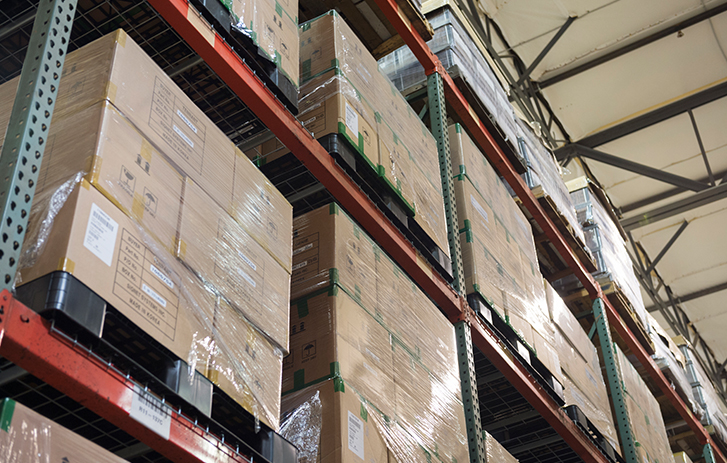
GUIDES & TOOLS / ROUTEMAP
Executive summary
The single market offers huge benefits to intra-EU trade, but there are other less familiar ways it can boost exports too.
Funding could be available for qualifying businesses, with over €200 billion due to be allocated to SMBs by 2027.
Teams of experts can offer tailored help to individual businesses, while industry clusters are supported by relevant policies.
Trade agreements offer preferential access to many markets, with educational resources able to clarify specific requirements for individual goods.
How the EU helps SMBs to export
When the European Union was formed in 1993, its single market meant opportunities for businesses to trade internationally changed dramatically. However, there is more to the EU than just the single market. It also provides a wide range of additional support and services that businesses may not be so familiar with – yet taking advantage of them could make all the difference to those aiming to achieve their overseas potential.
Of course, the single market itself has been transformational. Free movement of goods, capital, services and people made it easier than ever to export within Europe. With tariffs removed for goods travelling within the single market, businesses are able to access approximately 450 million consumers with minimal friction.
The removal of other trade barriers helps too. Trade is simplified by mutual recognition, for example, where goods sold legally in one EU country can also be sold in all others. And harmonised standards and regulations mean that products are easier to sell in other member states.
Countless European businesses have benefitted. Intra-EU exports of goods worth €4.14 trillion in 20231 and, according to one survey, 86% of SMBs in France say access to the single market is crucial for business growth.2
But there are other avenues to explore too that could help SMBs take another step towards achieving their export ambitions. So, with Europe Day (which marks the anniversary of the Schuman Declaration, which laid the foundations for the EU) being celebrated this month, it’s a great time to explore four essential – yet potentially under-explored – ways that the EU can help fuel exports and drive international growth for SMBs.
1. Providing small business funding
The EU provides a considerable degree of money for businesses across a broad range of funding programmes. Much of this is targeted specifically at SMBs – in 2023, the EU said it planned to spend over €200 billion on them under various funding programmes running until 2027.3
Some examples of funding that are particularly relevant to SMBs include:
- Improving access to finance and markets through the single market programme.
- Research funding through the Horizon Europe programme.
- Agricultural sector funding through the Common Agricultural Policy.
- Improving competitiveness (such as through training) via the European Social Fund Plus.
- Funding to help businesses protect their intellectual property rights, through the SME Fund.4
The EU also helps with financing in a variety of ways. The European Investment Bank Group, for example, provided around €16.2bn in financing for SMBs in 20245, while support for entrepreneurs and businesses is available through a wide range of programmes delivered by local financial institutions and accessible though the Access to EU Finance portal.
Action plan
The funding programmes provided by the EU are numerous and varied, and can contain many separate initiatives within them. Doing your research thoroughly is key. Details for many of the programmes listed here – and more – can be found on the EU’s funding opportunities for small businesses page.
2. Offering support to drive international growth
The Enterprise Europe Network (EEN) is described by the EU as “the world’s largest support network for small and medium-sized enterprises with international ambitions”.
It brings together member organisations such as chambers of commerce & industry, regional development organisations, innovation agencies, and universities and research institutes, with teams of experts across key economic sectors able to offer a personalised service to businesses.
Some of the main ways the EEN can help businesses to grow internationally and increase their exports include:
- Helping to identify sources of finance and partnering opportunities, and advice on navigating single market legislation and policies.
- Supporting businesses to enter new markets and take innovative ideas to international commercial success.
- Guiding companies as they become more sustainable, build resilience and integrate digital solutions.
Action plan
The EEN says that, on a daily basis, 885 small companies get help to innovate and grow internationally, 112 enterprises benefit from in-depth tailored advice, 525 companies receive specialised guidance and training sessions, and five sign partnership agreements. If you want to explore how it could help your business, visit the EEN website.
3. Encouraging growth through industry clusters
Clusters are groups of businesses and associated institutions located near to each other and operating in related activities. The idea is that, by working together, businesses within clusters can be more innovative, more productive, create more jobs and attract more investment.
There are over 1,500 clusters in the EU, accounting for almost 25% of total employment, and the EU has many policies aimed at supporting them. These include:
- European Cluster Partnerships:
Launched to encourage partnerships between clusters to further the interests of their SMB members. The partnerships cover four areas – Innovation, International, Excellence, and Smart Specialisation. - European Cluster Collaboration Programme:
An online hub that is the largest information centre for EU industry clusters and offers services such as matchmaking events and knowledge exchange.
Action plan
If you’re operating within a cluster (or would like to know more about them) you can learn more about the policies and programmes that could support your business by visiting this European Commission webpage.
4. Increasing competitiveness through trade agreements
The EU has over 70 trade agreements in place globally, and they cover nearly two-fifths of EU trade with other countries.6
These agreements provide a range of benefits for SMBs, including reduced tariffs and faster customs procedures. And all new trade agreements will feature a specific SMB Chapter (if the partner country agrees) that should help improve collaboration when addressing issues related to smaller businesses.
Yet despite the benefits of EU trade agreements, it’s clear that there’s further to go to truly maximise their potential. Figures show that only 5% of EU SMBs export to countries outside of the EU.7
Action plan
To fully realise the export potential that trade agreements can deliver, it’s essential to understand what’s on offer and how to make the most of it. The EU’s Access2Markets website can provide more details, including how trade agreements are structured and where to find the information you’re looking for in them, details of trade agreements and arrangements with individual countries, and the specific requirements for your goods in your chosen export market.
Growing your international trade
If your business is located within the EU, the information detailed above shows some of the help you can access that could help you to strengthen your operations and expand your export horizons. If that’s part of your strategy, it could also be worth learning more about customs clearance to help make sure your shipments travel smoothly. You can also check out our article on growth opportunities in cross-border e-commerce, or explore opportunities closer to home in our in-depth look at e-commerce in Europe.
Disclaimer: The information provided on this page does not constitute legal, tax, finance, accounting, or trade advice, but is designed to provide general information relating to business and commerce. The FedEx Small Business Hub content, information, and services are not a substitute for obtaining the advice of a competent professional, for example (but not limited to) a licensed attorney, law firm, accountant, or financial adviser.
1 Intra-EU trade in goods - main features | Eurostat, 2024
2 Over 86% of French SMEs consider access to the European Single Market to be crucial for business growth | Amazon, 2024
3 Championing Europe's SMEs: Commission provides new relief to boost the competitiveness and resilience of SMEs | European Commission, 2023
4 Launch of the 2025 SME Fund to help SMEs protect intellectual property | European Commission, 2025
5 SMEs and mid-caps | European Investment Bank
6 EU trade agreements in Access2Markets | European Commission
7 Trade working group exchanges views with European Commission | SME United, 2024





